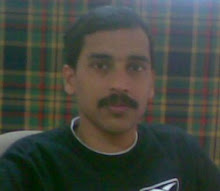Many believe that they are not writers despite writing articles for newspapers and publications. I have a broad definition for writers. I believe anyone who can read or write is a writer. A favourite question asked to me is: “How do I become a writer?” I do not know what is the attraction. Glamour? Money? The urge to communicate? Recently, a student wrote to me and asked me this question and hence this piece.
My advice for those wish to become writers: Write! Write! Write! I have always maintained that great writers are born, and professional writers are made. In the born writers there is an unquenchable thirst for writing, a passion for writing. Writing is a mission. Writing is the soul of the person. The professional writer does it for a living. There is a deadline and the writer can churn out the required number of words.
You can gauge a writer from the quality of the writing. In the case of the born writer, the words flow from the depth of the heart. In the case of the “made writer”, words surge from the power of the pen and the power of the mind. Mind you, both can be equally effective.
I believe there is always a demand for writers, especially writers with talent, and those with domain knowledge. If you are an expert in any field, you can become a writer in that field. The tragedy is that students undergoing college and doing some computer diploma wish to become columnists overnight on subjects which they are just learning. This is somewhat akin to a medical intern performing a heart surgery.
Specialisation
While I recommend that you hone your writing skills, I feel you should also find your niche area. Concentrate on a domain area where there are a few writers.
In India, science journalism and information technology journalism is still not a well-developed field. I am sure it is still difficult to get good writers to write on technology. So the same specialist writes for all the papers. The same person is interviewed on all the TV channels. Obviously, the same answers are spouted all the time. If you are good, entry would be relatively easy.
Start writing
So start writing and look for avenues for publishing. The Internet affords you several opportunities. You can start writing Blogs and get noticed. Who knows, an editor may notice your powerful prose and get in touch with you to write for his/her paper? The more you write the better will be your writing style.
Start reading
Of course, those who have writing in their blood need not read. Wonderful prose will flow from their keyboards anyway. New writers can benefit a lot from reading other writers.
How do they start the column? How many words do they write? What is so sacred about 750 words? What kind of headings are effective? Which columnist do I like? Why do I think that this columnist is a fake? Once you read several columns, you will begin to appreciate style and content. You will be able to judge why columns sell and sizzle.
In a journalism workshop, we were told to read all the Sunday newspapers. For several years, I used to buy several Sunday newspapers. So I got exposed to a variety of writing styles. I learned about formatting and presentation. By the way, I started my apprenticeship (for my Bhavan’s Diploma in Journalism) with Sunday Standard and even wrote two pieces for that paper.
I think there are hundreds of good journals and magazines on information technology, science, and technology. Study them. Read them. Aspire to write for them. Wired has a great blow-your-mind style. Study this publication for a trendy way to write and communicate.
If you have access to American and British publications, you have a gold mine. Just study them for a year before you write your first word! Read at least six issues of a publication to get a hang of its content.
I am sure this very publication is the alma mater of many good writers and columnists. I confess to being one of the early products of this school of journalism.
Journalism course
In Mumbai, you have a Bachelor’s Degree in Journalism. There is a short course in Science Journalism too. Check out the newspaper for announcements. There are workshops on journalism. Such education may prove helpful for those who wish to be writers.
Hope these tips and tricks will help you become a writer. I look forward to seeing your articles soon.
Subscribe to:
Post Comments (Atom)

No comments:
Post a Comment